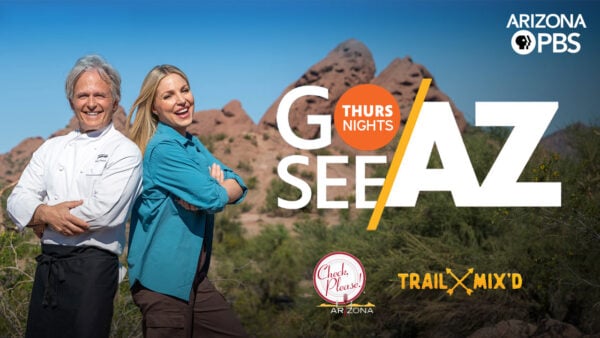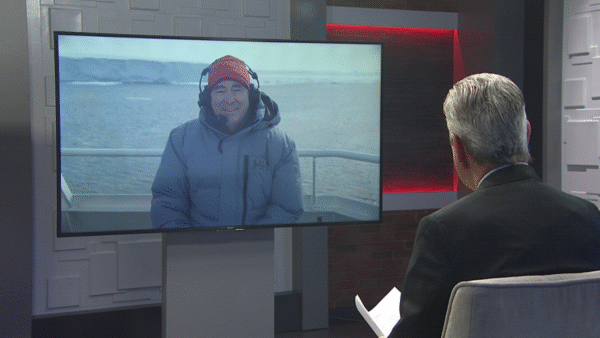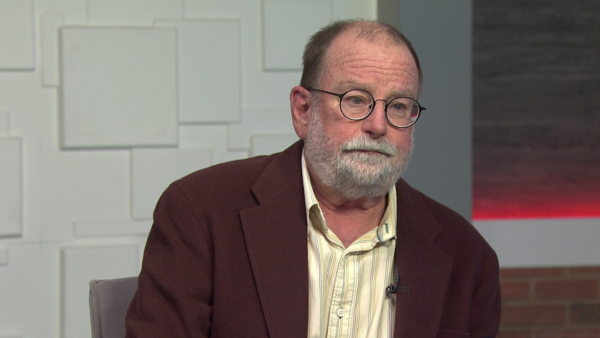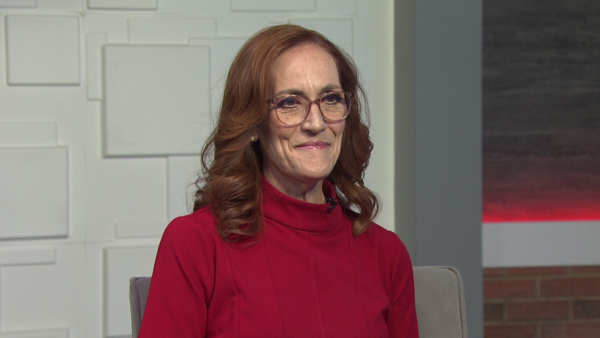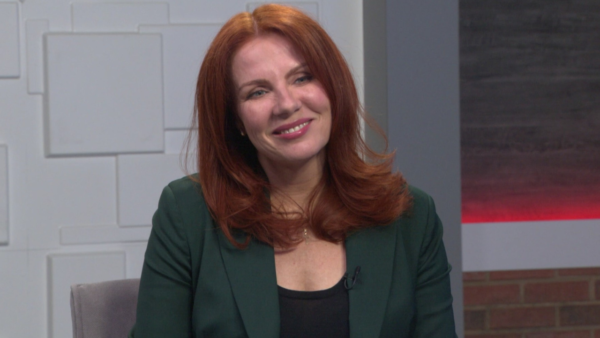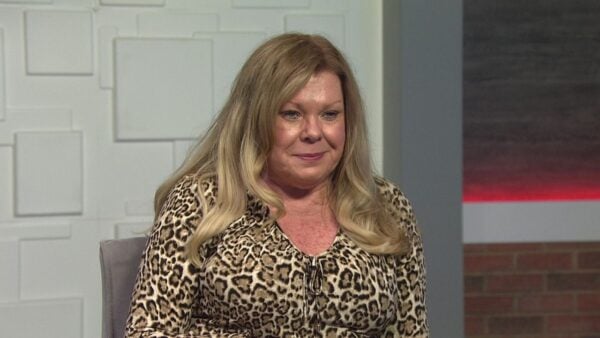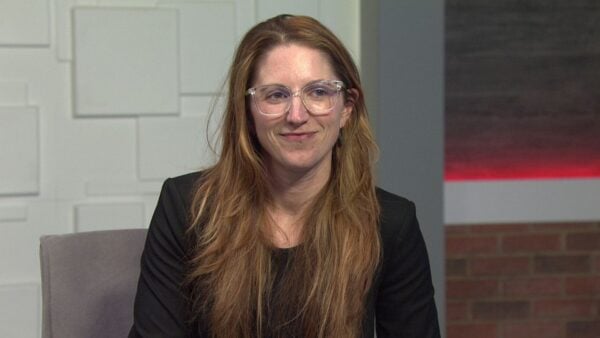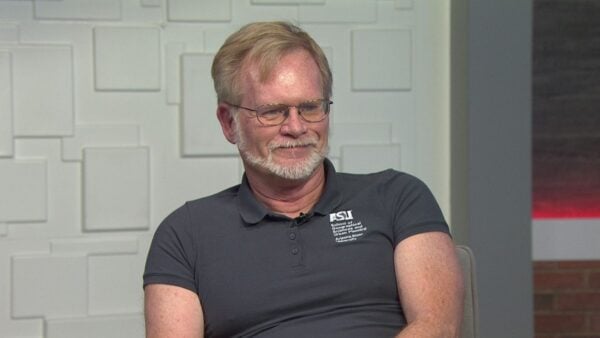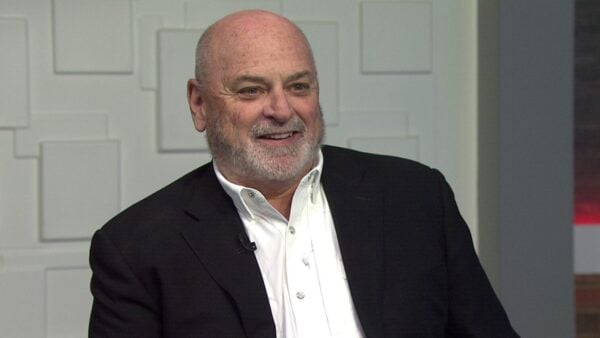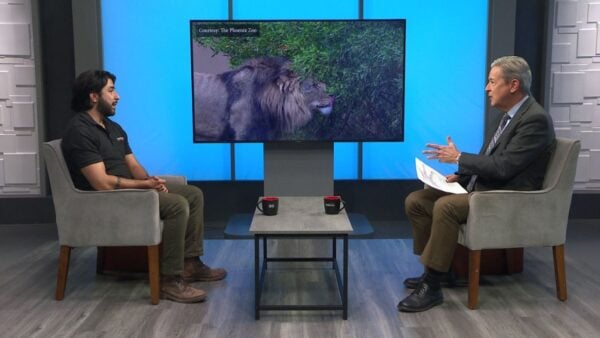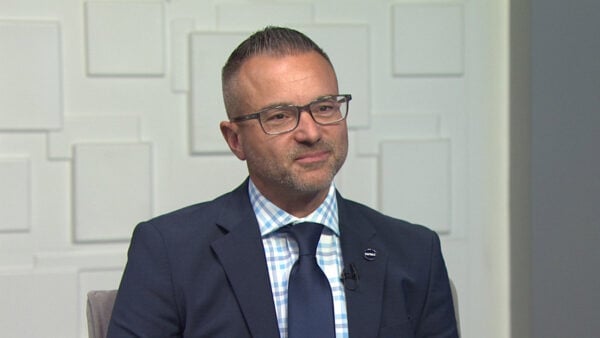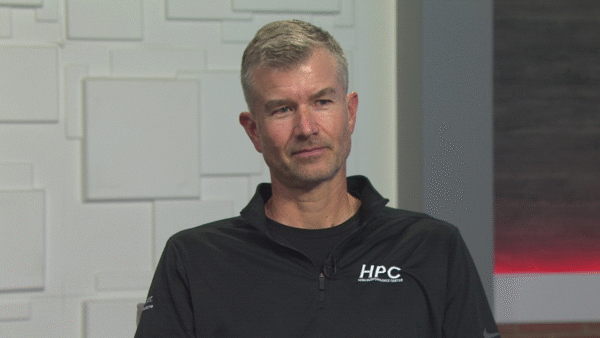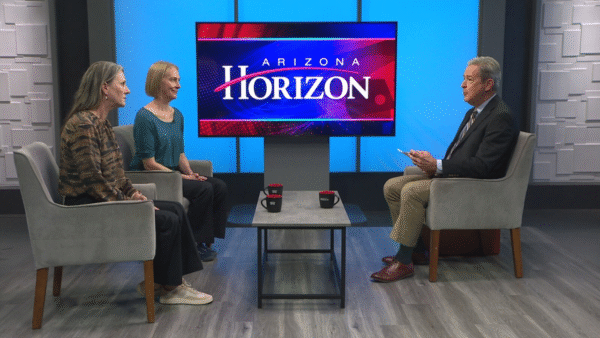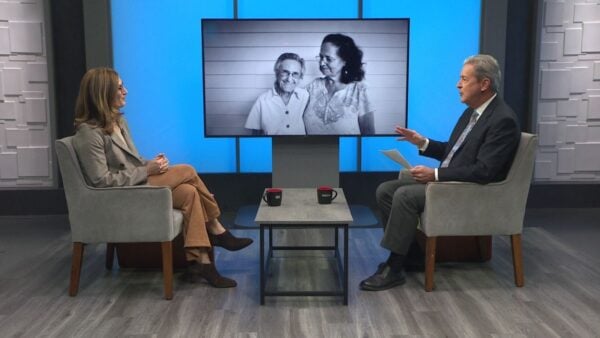You can get more than one kind of “date” attending Arizona State University. A group of volunteers grow and harvest many kinds of edibles on campus, including dates from palm trees. We’ll show you how many can benefit from a source a fresh food right on campus.
Ted Simons: Arizona state university is home to a unique group of volunteers, and as producer Shauna Fischer and photographer Steve Snow show us, some of the volunteers on the Tempe campus are putting their green thumbs to good use.
Shauna Fischer: Miles Campos is spending the morning picking grapefruit not in an orchard, but in the middle of ASU Tempe's campus. Miles is part of an all-volunteer program run by Deborah Thirkill.
Deborah Thirkill: Campus harvest is a program here at ASU that we harvest everything on campus, our dates, sour oranges -- no one goes hungry on our campus.
Shauna Fischer: The entire 750-acre campus is an urban garden with an edible landscape, all available to the students. It was the vision of the former ASU president Lattie Coor. For Miles, the concept behind an edible campus was a welcome one.
Miles Campos: Coming from out of state, when I first got to Phoenix, especially ASU, all I saw was desert and it seemed sterile to me. Nothing grew and it was just empty.
Shauna Fischer: Miles soon learned there was more growing here than he realized, including date palm trees.
Deborah Thirkill: ASU is unique, we can grow those -- and that is so unique to this area.
Shauna Fischer: ASU's groundskeeping crew harvest the dates that grow on 80 trees. Volunteers package them and they're sold at campus bookstores and farmers market and used in ASU's dining hall. Nearly 5,000 pounds of dates are harvested in a single season. Campus harvest extends beyond the trees.
Miles Campos: In my plot right now, I have brussel sprouts, beets, carrots.
Shauna Fischer: Miles and a dozen other students have their own gardens growing on the south side of the social sciences building.
Miles Campos: It feels good to be a farmer. It is almost like a spiritual experience for me. You get that dirt under your finger nails and you make something and it is a wonderful experience.
Shauna Fischer: The students are given an 8 by 10 foot plot and can plant whatever they want, peppers, squash, even herbs. The only requirement, they have to maintain their own gardens. They're also free to do what they want with the fruits of their labor. They can sell the veggies at farmers markets or to ASU's campus dining. They can give them to friends or keep them for themselves. Bianca Zietal, a biology major, sees this as a chance to experience first-hand what she studies in the classroom.
Bianca Zietal: When I walk around campus and I see the variety of plans growing edible, non-edible, it makes me happy to see there is a sort of integration of flora and people being able to see where your fruit is coming from, especially the dates sold on campus. It creates this sense of unity, in that you know the origins of your food and you can appreciate where it comes from.
Shauna Fischer: Miles, who spends most of the day on the campus the size of a small city, relishes the opportunity to do something with and for his community.
Miles Campos: We're growing it, we're maintaining it, we're eating it. It's staying here. It's staying in our community. It's local. We know the quality of the food, and it's just a wonderful experience to know that you're supporting your classmates and your friends and feeding each other.
Ted Simons: And that is it for now. I'm Ted Simons. Thank you for joining us. You have a great evening.
